
OUR IMPACT by the numbers


OUR IMPACT by the numbers
Oxfam is a global organization working to end the injustice of poverty and inequality by focusing on women’s rights. That’s why at Oxfam Canada, we work in three critical areas:
We provide emergency aid when disaster strikes or conflict breaks out.
We support projects that help people assert their rights and build better lives. We work to change the laws and practices that perpetuate inequality and keep people trapped in poverty. HUMANITARIAN


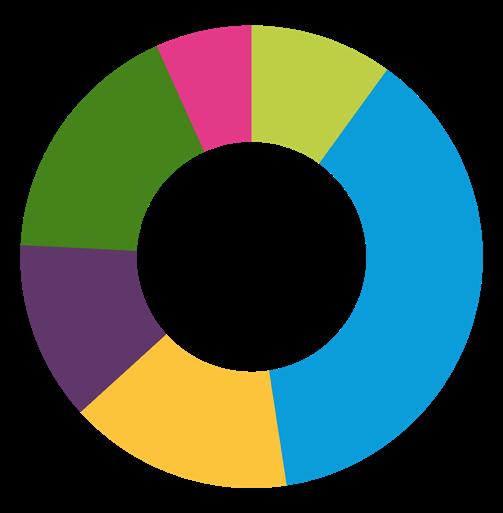
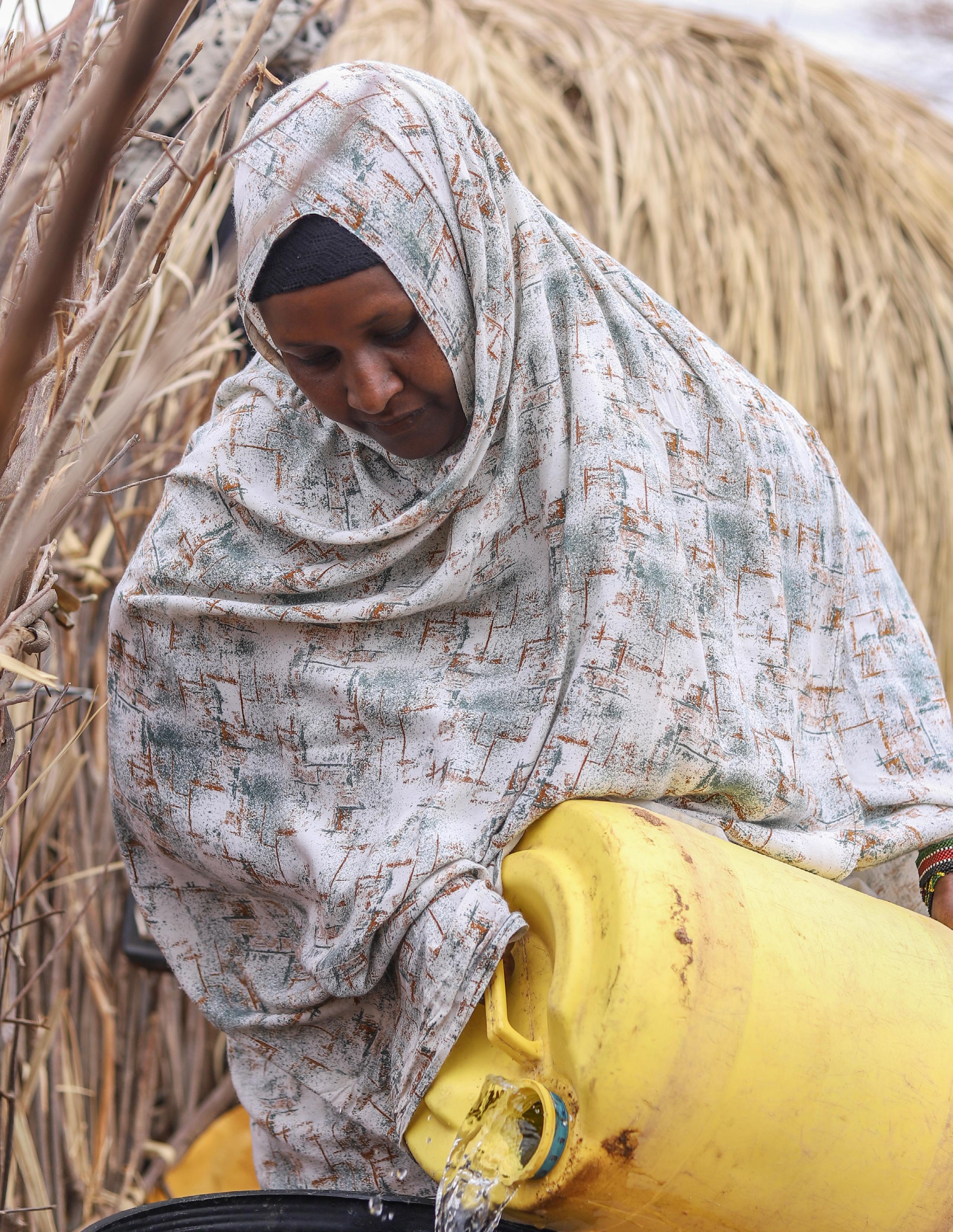
We provide emergency aid when natural and climate-induced disasters strike or conflict breaks out, then stay for the long term and work with local organizations to rebuild lives and support the needs of people and communities.
We reached 459,875 people across 4 countries:
Mexico
Pakistan
Bangladesh
Philippines
• 36,832 hygiene and dignity kits provided to crisisaffected communities
• 11,975 people were reached through hygiene promotion sessions
• 46,837 water kits/vouchers provided
• 2,625 water points (latrines, handwashing stations, water pumps, boreholes, etc.) rehabilitated, repaired, installed and upgraded to increase access to water for crisis-affected communities, reaching over 23,105 people
• Training and orientation of caretakers for maintenance and operation of water points
• Facilitated sessions and trained 2,750 people on community-based protection
• Supported 1,182 people in accessing Sexual and Reproductive Health (SRH) services
• Provided 40,771 people with shelter kits, of which almost half were winterization kits containing items specifically designed to protect vulnerable households from harsh winter conditions
• Provided 2,991 referrals and consultations to protection services
• Food baskets were distributed to 5,932 people
• Food/agricultural/garden/cooking kits, including seeds, farming tools, cooking tools, and crops provided to 8,269 people
• Supported 137 entreprises with small business grants
• Provided livestock vaccinations/treatments for 1,000 households (6,210 people)
• Provided equipment to be used in livelihoods, such as beach umbrellas in tourist areas of Mexico, to 26,025 people
• Distributed multi-purpose cash assistance to 39,192 people
• Disbursed cash for work assistance to 3,664 people
• Disbursed cash for food & water assistance to 18,288 people
We reached 20,000 people across 6 countries:
Ethiopia
South
Sudan
Uganda
Myanmar
Bangladesh
Somalia
Protection & Gender in Emergencies
• Community-based protection training and the creation of 100 self-help groups for 2,000 women and girls, allowing them to initiate group savings and access protection mechanisms
• Emergency cash support was provided to 146 women survivors of sexual and gender-based violence
• Training provided to 350 women leaders, men and adolescent boys on the facilitation of women’s participation in decision-making spaces
• Gender in Emergencies training given to 163 adult and young women

This project is in its early stages. It aims to promote equality by supporting women and girls in resisting damaging social norms and exclusion from decision-making spaces
What Oxfam aims to achieve:
• We plan to hold 46 sessions to raise awareness about women’s rights, aiming to reach 2,000 community members
• We will challenge stereotypes, gender norms, and discrimination against women, especially young women, through 114 discussions that will reach 11,000 people
• We will conduct 18 training sessions for women and girls in camps for internally displaced people and nearby communities
• We will host 43 sessions and train over 900 individuals to become champions for gender equality, women’s rights, and peaceful coexistence
• We will work with women leaders to design and improve 36 water, sanitation, and hygiene (WASH) services, benefiting 56,000 people
• We will train over 700 young and adult women through Oxfam’s Gender Leadership Programme
• We will support 50 women leaders to participate in policy discussions and decision-making spaces


This project is in its early stages and aims to champion education for refugees, internally displaced people, and host community children in South Sudan and Uganda.
What Oxfam aims to achieve:
• 37,400 refugees, Internally Displaced Persons (IDPs) and host community children and youth will be reached and will directly benefit from access to education
• We will strengthen the capacity and performance of 6 Community Based Organizations (CBOs) in Uganda and South Sudan on gender-responsive education
• We will organize training sessions with 80 male staff in CBOs in South Sudan and Uganda to enable the adoption of organizational policies and practices that promote women’s leadership
• We will train 75 women in CBOs on effective leadership, human rights, self-confidence, conflict management and peacebuilding, and good environmental stewardship
• We will provide gender-responsive training to 100+ influencers and 200+ refugees and IDPs in South Sudan and Uganda
• We will engage 150,000 Canadians in awareness campaigns around the importance of gender-responsive quality education initiatives for refugee and IDP children, especially girls
We reached 20,000 people across 10 countries:
Poland
Türkiye
Syria
Indonesia
Lebanon
Somalia
Ethiopia
South
Sudan
Haiti
• We provided 55,432 hygiene kits to individuals, families and children, including kits designed specifically for babies, pregnant and lactating mothers and the elderly
• We provided 4,953 dignity kits to women, girls, Gender Based Violence (GBV) survivors and crisis-affected community members, of which 1,050 were contextspecific and culturally appropriate menstrual hygiene management kits to 508 women and 542 girls
• 33,825 people were reached through hygiene promotion and awareness sessions and activities
• We distributed 41,292 water kits containing water treatment chemicals
• Rehabilitation, repair, installment and upgrade of 2,585 water points, serving around 332,280 people in various vulnerable communities
• We trained 330 people (183 men and 147 women) as village handpump mechanics and community hygiene volunteers in the project locations
• We distributed food to 5,500 people in drought-affected communities in Ethiopia
• Agricultural input support, including seeds, crops, and farming tools was provided to 16,687 people
• 43 small businesses received essential specialized technical business support and sessions on improving knowledge of decent work standards
• Provided cash support to 100 micro-business owners (women and youth employees) who lost their jobs as a result of the market fire
• 48.6% of small businesses are women-led in Beirut, while 70% are women-led in Somaliland
• Distribution of livelihoods equipment to 4,632 crisisaffected individuals, including fishing gear, animal feed, shovels, fire extinguishers and nets

• We provided community-based protection training to 7,410 people in diverse conflict-affected contexts
• We created a dedicated hotline for youth and women to call for referrals and support in Somaliland
• We created an online platform and learning tool on migration and local integration in Poland for Ukrainian refugees that provided 98 lectures and 13 podcast episodes, advocacy training sessions for consortium members and meetings with 75 local authorities, and a network of 50 activist allies
• We distributed 8,272 shelter kits for earthquakeaffected people in Türkiye, kits for gender-based violence survivors in Ethiopia, and shelter kits for the most vulnerable individuals and families affected by the Haiti earthquake
• We created 21 safe spaces for women and children in South Sudan and Türkiye, reaching over 1,953 individuals so far
• We produced and distributed 100 GBV registration ledgers/books to local health service providers in Ethiopia, and established case management and followup mechanisms in Kenya
• We coordinated 3,500 public health, mental health, and psychosocial activities with affected populations in Türkiye, targeting women and children in particular
• We trained 54 male champions on the importance of gender in emergencies in South Sudan
• Cash support was provided to 999 Gender Based Violence (GBV) survivors and those identified as at risk for medical expenses, transportation to access medical services, etc.
• Disbursement of MPCA to 69,866 vulnerable crisisaffected people
• Cash for work provided to 45 people in South Sudan
• Cash for food and water assistance was distributed to 6,475 people
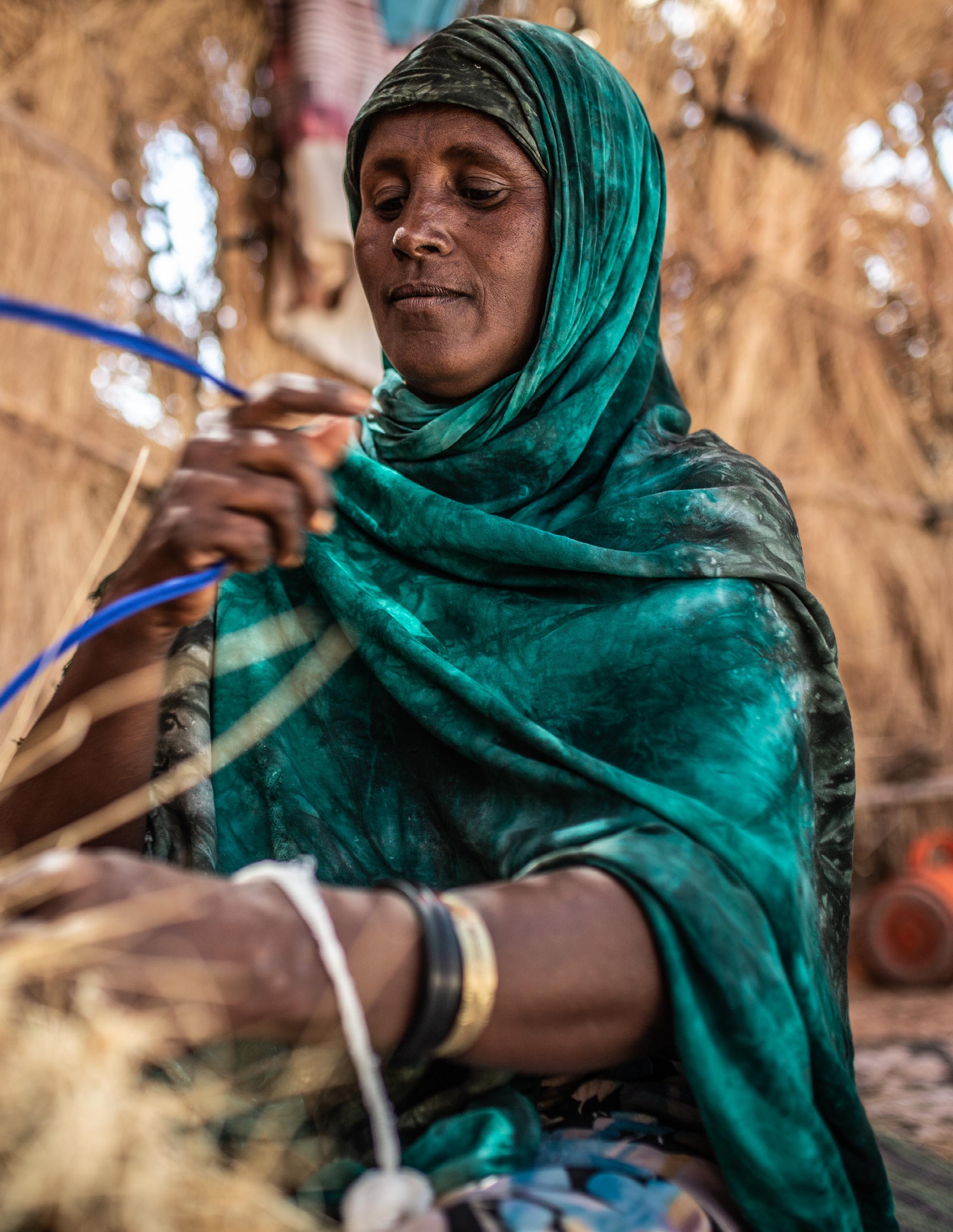
We supported projects in 25 countries that help people assert their rights and build better lives for themselves and their communities. We work with local partners to develop long-lasting, farreaching solutions that enable people in poverty, especially women and girls, to provide for themselves, their families, and their communities in a sustainable way. Because food security, safety, education, and earning a decent living are rights, not privileges.

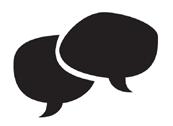
Assert sexual and reproductive health rights
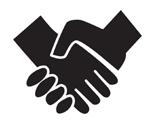

Assert women’s right to economic justice Provide women with access to transformative leadership opportunities
What Oxfam has done
A project to advance gender equality by preventing gender-based violence in Jamaica.
So far, we have reached 685 women and young girls with our gender-based violence prevention programs, including:
• 3 sessions reaching 71 participants to address gender norms
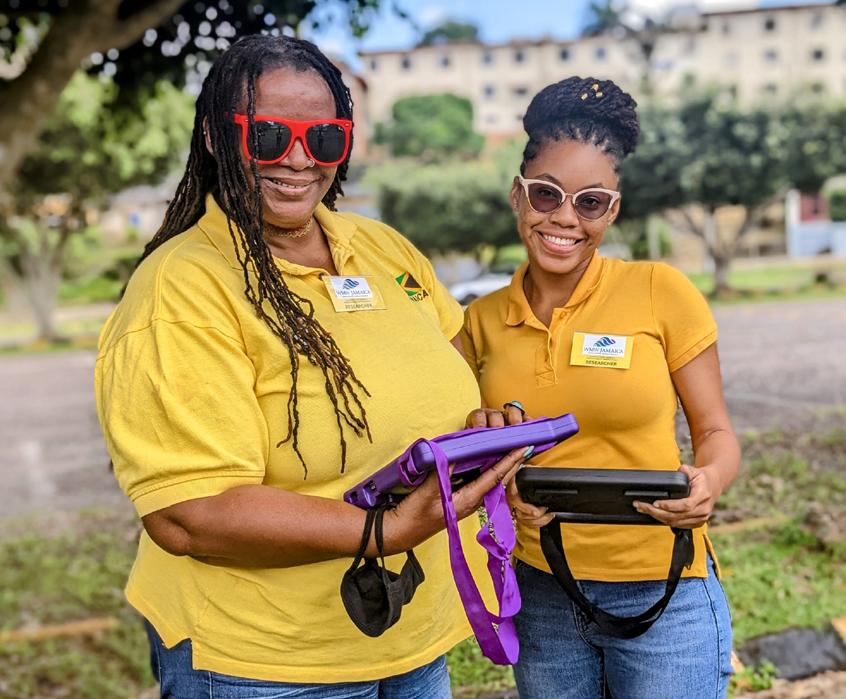
What’s next?
• 15 workshops will be held with women and youth on their rights, build their confidence and leadership skills to strengthen their capacity to self-advocate
• One major behavioural change campaign focused on social norm change will be launched with a target of reaching 12,000 people across Jamaica
• 9 alliance-building activities aimed at raising awareness of and fostering discussions on gender-based violence Beneficiaries 685 N/A N/A N/A
A project championing the enjoyment of sexual and reproductive health and rights in Mozambique, Uganda, and Canada.
So far, almost 19,000 people have received sexual and reproductive health support through this program. Most were women; about two-thirds female, one-third male, and a few identifying as non-binary. Some of the key activities included:
• Training 249 healthcare providers to give young people birth control, including long-lasting options
• Training 249 people to teach others about sexual and reproductive health in our project areas
• Over 260,000 young women received help with sexual and reproductive health services in their communities
• Most health centers now have plans in place to help people who have experienced sexual or gender-based violence Beneficiaries
249 health service providers trained
249 facilitators and peer educators trained
262,866 adolescent girls and young women reached
64% health units have documented and adopted protocol for the clinical management of SGBV services Outputs Outcomes
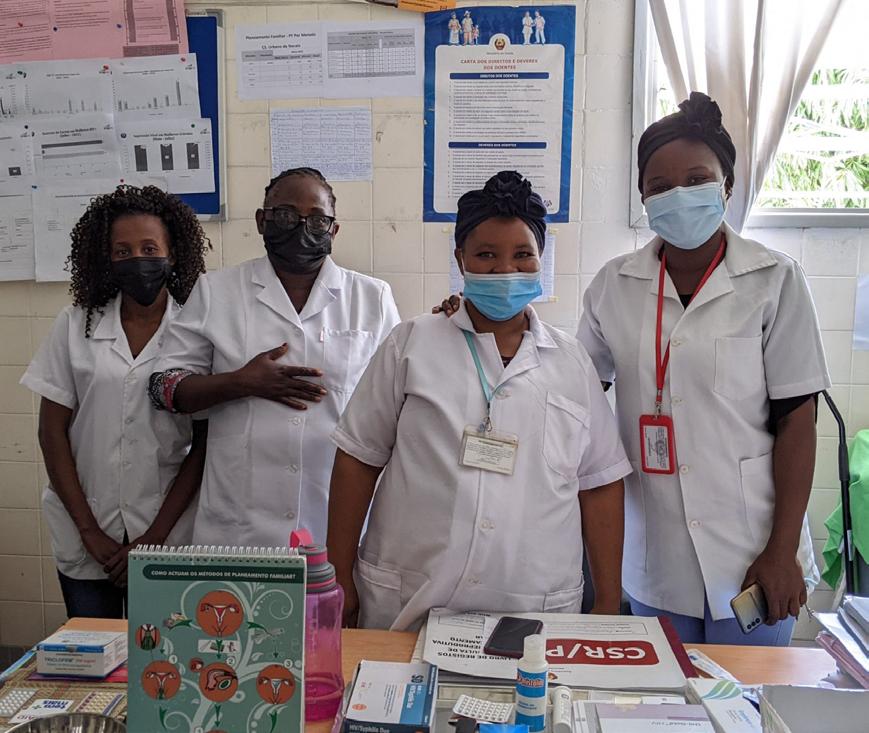
A project to change negative attitudes on sexual and reproductive health and advocate for women’s bodily autonomy and rights in the Philippines.

What Oxfam has done
SHE is working to advance women’s sexual and reproductive health and rights in three important ways:
• Eliminating the barriers that prevent women from exercising their right to sexual health care
• Advocating for the country’s law that mandates universal access to be respected
• Supporting local organizations to reach women and girls who wouldn’t otherwise be able to access vital information and services
So far we have...
• Reached more than 50,000 individuals, 65% of whom are women and girls
• Trained more than 893 additional peer educators to support activities focusing on sexual and reproductive health and rights and gender-based violence prevention
• Conducted over 500 community sensitization and mobilization sessions with influencers on gender, Sexual and Reproductive Health and Rights (SRHR), and GenderBased Violence (GBV) prevention
• 16 Local Government Units implemented referral mechanisms for SRHR services
• Trained and supported 5945 facilitators, peer health educators, and Barangay Health workers to raise awareness on SRHR in project locations
• 131 community sensitization and mobilization sessions were held with influencers on gender, sexual and reproductive health and rights, and gender-based violence prevention
• 49,034 women of reproductive age are current users of family planning, with an average contraceptive prevalence rate of 35.84%
• 75 public declarations and actions by influencers to support SRHR and women’s rights and leadership
• 68,033 individuals accessed quality and gendersensitive reproductive health services, including modern contraception
• 18 rural health units now have at least 3 modern contraceptives available
156 Community Sensitization initiatives
16 LGU (local government units) with referral mechanisms in place for SRHR services
49,034 women of reproductive age are current users of family planning with an average contraceptive prevalence rate of 35.84%
75 public declarations and actions by influencers to support SRHR, and in support of women’s rights and leadership
100 Community Sensitization initiatives
16 LGU (local government units) with referral mechanisms in place for SRHR services
68033 individuals who have accessed quality and gender sensitive reproductive health services including modern contraception
39 public declarations and actions by influencers to support SRHR, and in support of women’s rights and leadership
253 Community Sensitization initiatives
16 LGU (local government units) with referral mechanisms in place for SRHR services
2266 individuals who have accessed quality and gender sensitive reproductive health services including modern contraception
26 public declarations and actions byi nfluencers to support SRHR, and in support of women’s rights and leadership
5945 facilitators, peer health educators, and Baranguay Health workers trained
131 community sensitization initiatives
18 rural health units have at least 3 modern contraceptives available
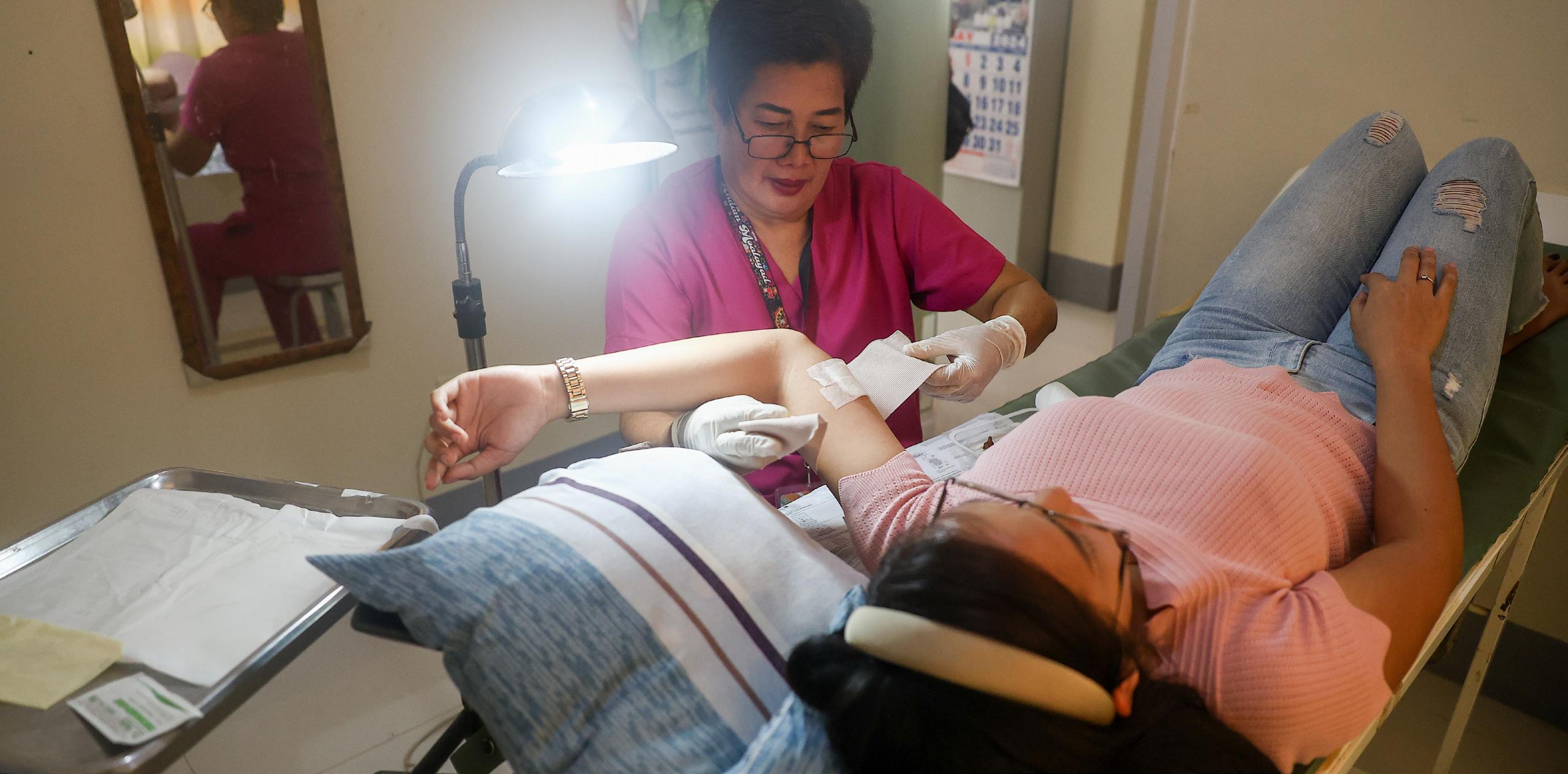
A project to empower women and girls in sub-Saharan Africa to access more choices toward a brighter future.
The ultimate outcome of Her Future, Her Choice is improved sexual and reproductive health and rights (SRHR) for adolescent girls and young women in Ethiopia, Malawi, Mozambique, Zambia.
Since 2019, we have reached 84,587 people, most of whom were women, with training initiatives including:
• 532 facilitators and peer educators trained in SRHR awareness
• 34 teachers trained in comprehensive sexuality education
We have also:
• Established 18 youth-friendly spaces providing sexual and reproductive health and rights services
• Provided access to SRHR services for 89,060 young women and girls
• Enhanced the skills of 615 healthcare providers in delivering comprehensive SRHR services
• Notable achievements include the shortlisting of Oxfam’s paper on improving contraceptive access for AGYW in Malawi for a national symposium and training Canadian youths in SRHR advocacy activities. Additionally, Action Canada produced two policy briefs on integrating sexual health drugs and commodities into Canada’s Pharmacare Plan. Beneficiaries
Outputs
Outcomes
89,060 young women and girls provided with access to sexual and reproductive health services
615 health care providers who demonstrate an increase in knowledge or skill in delivering comprehensive SRH services
101,346 young women and girls provided with access to sexual and reproductive health services
690 health care providers who demonstrate an increase in knowledge or skill in delivering comprehensive SRH services
31,926 young women and girls provided with access to sexual and reproductive health services
395 health care providers who demonstrate an increase in knowledge or skill in delivering comprehensive SRH services
7,167 young women and girls provided with access to sexual and reproductive health services
122 health care providers who demonstrate an increase in knowledge or skill in delivering comprehensive SRH services
A project promoting the economic empowerment of Indigenous women and youth in Alta Verapaz, Guatemala.
• Over 21,000 people, mostly indigenous adult women and young women have been reached through our economic empowerment efforts
• We’ve trained over 15,000 indigenous women and youth in topics like sustainable farming, clean technologies, business skills, and land rights
• 11 women-led and 2 youth-led businesses have officially established their small-scale operations
• 36 women from land committees have successfully registered with the Land Fund, making it easier for them to get land
• The Municipality of Raxruhá invested around CAD 13,000 to support local agriculture, benefiting 301 women
• The skills and abilities of indigenous women and youth leading 54 active economic projects have been strengthened
Beneficiaries 9,738 81% of whom Indigenous
Outputs
Outcomes
3,221 Indigenous women and youth trained in environmentally sustainable and climate resistant production practices
369 Indigenous women and youth sensitized on clean technologies and innovations for their economic undertakings
of whom Indigenous
4,529 Indigenous women and youth trained in environmentally sustainable and climate resistant production practices
90 women and youth trained on their rights to land
of whom Indigenous
41 Indigenous women and youth trained in environmentally sustainable and climate resistant production practices
90 women and youth trained on their rights to land
of whom Indigenous
826 Indigenous women and youth trained in environmentally sustainable and climate resistant production practices
25 women and youth trained on their rights to land
11 women led and 2 youth led enterprises have formalized their small-scale businesses
5288 entrepreneurs, farmers and small-holders provided with financial or business development service
5 women’s organization advancing on women’s rights and gender equality
6 advocacy plans developed by WROs
A project empowering women domestic workers in Bangladesh with the information, skills, and confidence they need to negotiate and secure key labour protections.
Since the start of this project, we have reached nearly 5,000 men and 20,000 women through over 2,000 workshops and occupational training for domestic workers on life skills, leadership, and the right to live free from violence.
In this past year, we have:
• Reached 4740 new domestic workers (98% of whom were women). Of these, 3385 domestic workers have so far received extensive training
• Onboarded 450 domestic workers, who were also offered jobs, through the HelloTask platform we partnered with
• A survey showed that among 100 domestic workers, 94% have heard about laws or policies protecting domestic worker rights. This is a significant improvement from the baseline of 18%
450 domestic workers onboarded and offered a job through HelloTask
94% domestic workers have heard about laws or policies to protect their rights
75% domestic workers have heard about laws or policies to protect their rights
A Consultative Forum was formed
A project strengthening the leadership of local women’s rights organizations to stop the human rights violations of women and girls in Pakistan.
What has Oxfam done already?
Our programming reached 153,759 people last year. WVL-P has 12 core WRO partners, 38 grantees, and 191 indirect beneficiary organizations and activists. Overall, 23,606 women and girls, as well as men and boys were engaged through 12 core WROs as part of their community programming.
• Digital outreach campaigns reached 130,153 people and highlighted the potential of technology to amplify the voices of women’s rights organizations in Pakistan
• WROs continued to focus on gender transformative programming and implemented locally relevant innovative approaches
• Two participants in the Gender Leadership program became Executive Directors in their respective organizations, a major step for women in such conservative areas
• A Guidebook on Gender Budget Analysis has been produced
• Core WROs have finalized their conversation around sustainability and formed a Fem Consortia
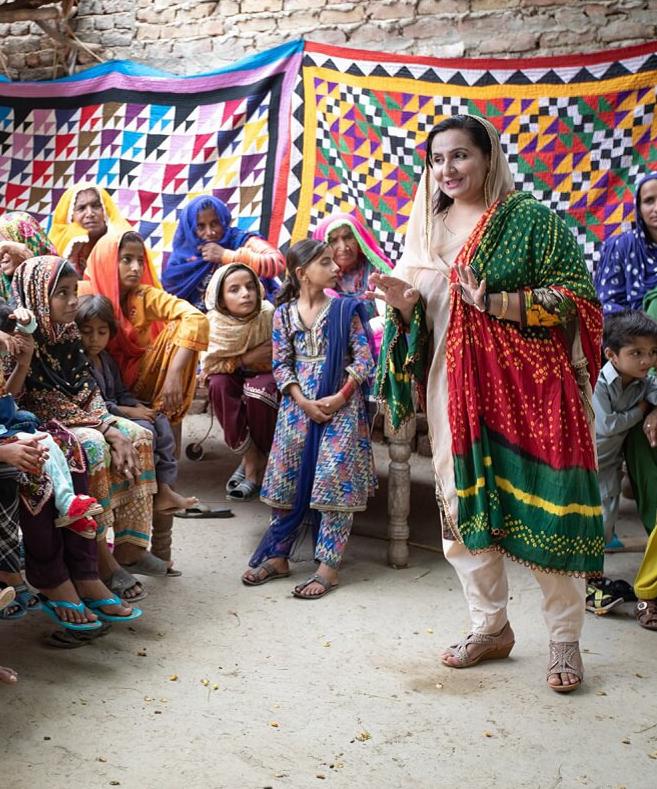
66% of leadership and decision making positions held by women in the WROs
70% of leadership and decision making positions held by women in the WROs
11 WROs reported increased ability to engage and mobilize
12 WROs reported increased ability to engage and mobilize youth using digital media
12 WROs reported increased ability to engage and mobilize youth using digital media
A project combatting the marginalization of Indigenous women in Guatemala by building on the strength and leadership of grassroots Indigenous women’s organizations.
The project has achieved significant milestones in empowering women and advancing gender equality by collaborating with women’s rights organizations like Tz’ununija’ and others. So far, we have:
• Worked with 2,582 women and 443 men from Tz’ununija’ and over 26 other women’s rights organizations
• Helped create over 100 safe spaces, like meetings or gatherings, where people can feel comfortable discussing important things, taking care of themselves, and having meaningful conversations
• Designed and implemented 12 plans to change social norms, working in collaboration with influential community leaders
• As a result, more Tz’ununija’ member organizations are now making decisions at different levels. Specifically, 47 of these organizations have representatives in decisionmaking spaces, whether it’s in their communities, towns, departments, or at the national level. Additionally, 25 supported organizations are now using better governance and management methods
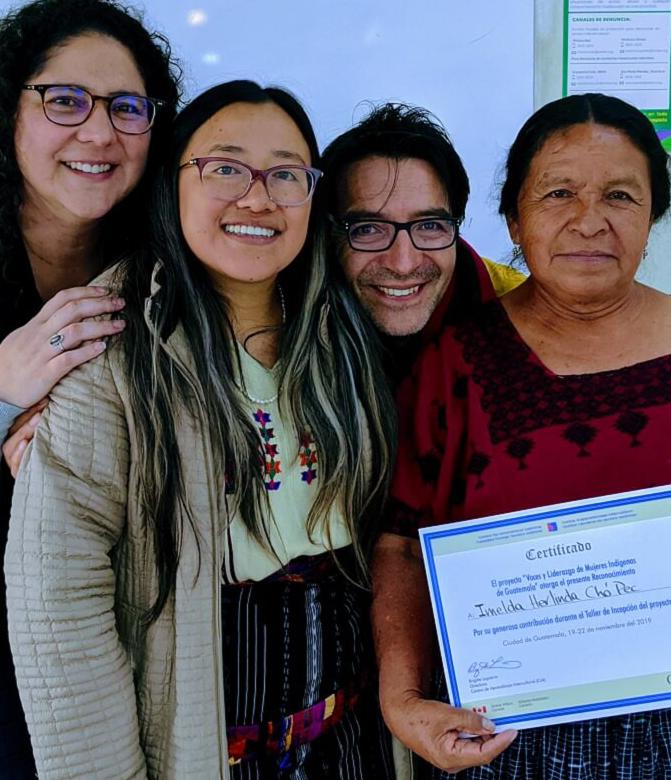
Beneficiaries 1643
Outputs
Outcomes
17 structures/ systems implemented
6 advocacy/ influencing strategies designed and implemented
17 Tz´ununija´ member WROs participate in decision-making spaces
7 WROs now using best-practice governance and managements practices
30 structures/ systems implemented
5 advocacy/ influencing strategies designed and implemented 60 structures/ systems implemented
16 Tz´ununija´ member WROs participate in decision-making spaces
8 WROs now using best-practice governance and managements practices
1 advocacy/ influencing strategies designed and implemented
14 Tz´ununija´ member WROs participate in decision-making spaces
8 WROs now using best-practice governance and managements practices
17 structures/ systems implemented
6 advocacy/ influencing strategies designed and implemented
14 Tz´ununija´ member WROs participate in decision-making spaces
8 WROs now using best-practice governance and managements practices
A
The ultimate outcome is to improve gender equality and the care infrastructure for women and girls in Kenya. During this 6-year project (2023-2029), we plan to:
• Reach a total of 5,916 people (women 4,451; men 1,465), including by training paid care workers to advocate for their rights, holding community couple sessions to shift social norms around household unpaid care work and delivering 30 behavioural change campaigns to change social norms around care work
• Engage 600 paid care workers in savings and loan groups and link them to financial institutions
• Engage with 56 employers of domestic workers to understand the rights of their employees
• Provide technical capacity support to 35 organizations and care worker unions, and 5 private sector institutions to improve their implementation of organizational care policies
• Train 48 workplace leaders to be champions of care work and policies in their workplaces
• Reach 24 legislators and policymakers through project policy briefs and advocacy on care work

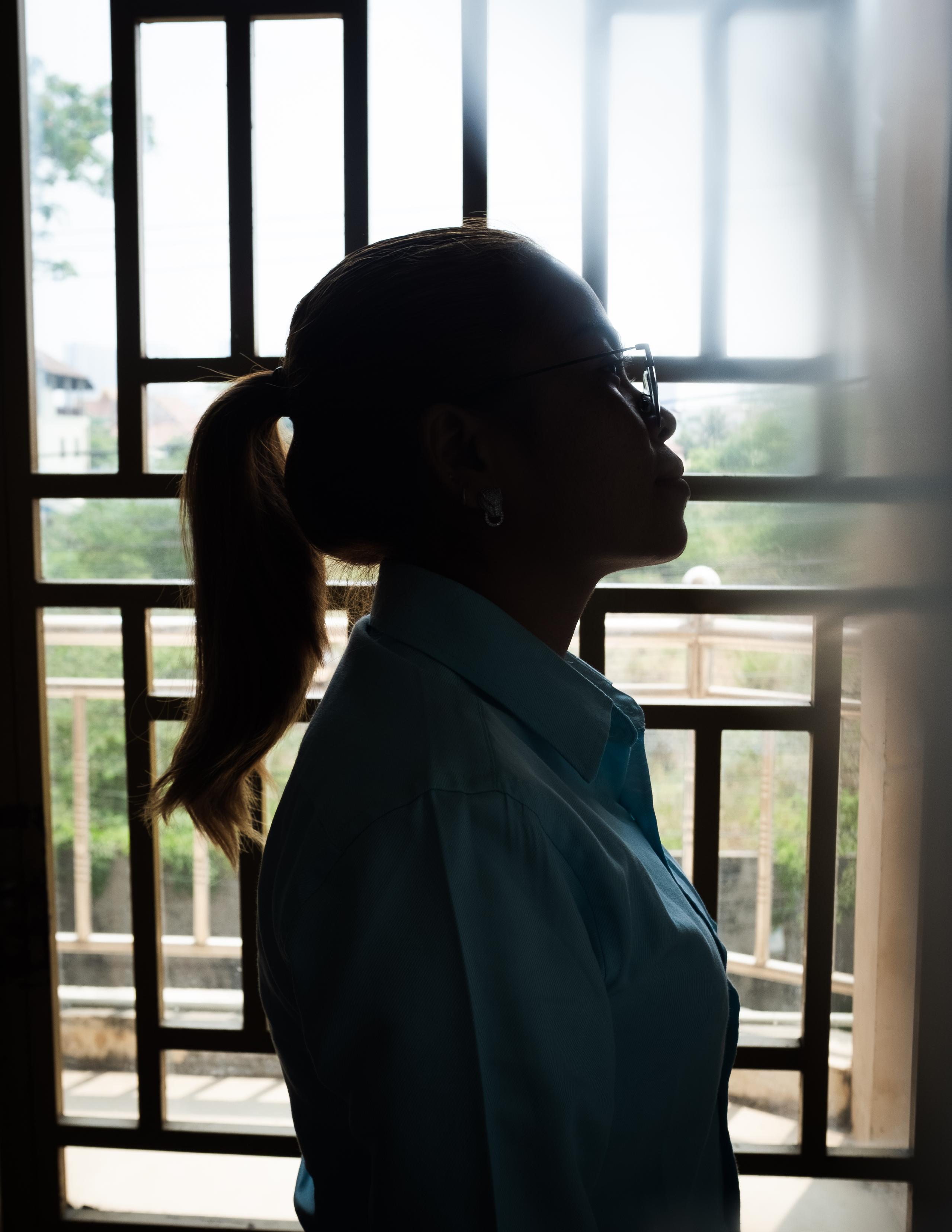
We work to change the laws and practices that perpetuate inequality and keep people trapped in poverty and we harness the power of people to change systems for the better. We do that by engaging governments and corporations to ensure policies are in place to ensure equity and fairness, and we mobilize the public and supporters in campaigns to put pressure on decision-makers.
After many years of advocacy of supporting the child care movement, we celebrated the federal government’s introduction of a bill to legislate child care in Canada – a key demand to ensure long-term investments and the sustainability of gains made. The bill came into law in 2024.
The global cooperation sector, including Oxfam Canada, welcomed the Budget 2023 announcement of an increase in foreign aid from $7.6B to $8B following a strong advocacy push. While not as much as we had advocated for, this increase was a welcome step considering the continued impacts of the pandemic worldwide. Many of these additional resources went to efforts to reduce the hunger crisis.
We know feminist movements are at the forefront of advancing gender equality. We organized a 2-day convening of 40+ feminist organizations from across Canada who want to influence the federal government to foster greater collaboration and allyship and provide space for strategizing.
We use our access and power to amplify calls by feminist organizations. We organized a roundtable with the Minister for Women and Gender Equality and 12 feminist leaders to discuss a range of priorities, from women’s economic security to child care and gender-based violence to sexual and reproductive health.
Our advocacy ranges from local to global. As part of the G7 engagement process, we participated in the W7 summit in Berlin, which included an opportunity to share the feminist movement’s recommendation with the German Chancellor.
We lent our support to others. We supported the Migrants Rights Network in their advocacy for a regularization program by sending letters to the Prime Minister, organizing 2 rallies in Ottawa, and supporting a major convening of migrant workers in Ottawa. The government finally committed to introducing a program that provides a pathway for permanent residence for all people living in Canada with precarious immigration status.
We know evidence is key to effective advocacy. We released our yearly Feminist Scorecard, which assesses the federal government’s action in 12 key areas. This scorecard provides a comprehensive analysis of government actions and the feminist movement’s recommendations.
Oxfam was a key contributor to a major win at the November 2022 COP27 global climate summit, when a new fund on loss and damage was announced to support lowincome countries in coping with the fallout of the climate crisis—a crisis created by rich countries but felt the most by poor countries.
With the explosion of inequality, supercharged by the pandemic, Oxfam Canada called on the government to create a windfall profits tax for corporations making excessive profits. Budget 2022 introduced a 15% windfall profits tax on banks and insurance companies for profits above $1B. A new luxury goods tax also came into effect, targeting luxury cars, private jets, and yachts
It’s people who make change happen! Our flagship What She Makes campaign continues to move the needle on women’s rights by calling on Canadian fashion brands to pay living wages to the women who make our clothes. Now counting 40,000 supporters, we launched our first assessment of the target companies on their path to achieving living wages and put some extra fire under the feet of Joe Fresh to be more transparent on where they source their garments.
Supporting young advocates has been a priority for Oxfam Canada for decades. We hosted 2 Oxfam Summits this year, bringing together advocates from across the country for advocacy workshops. The first summit took place online in May 2022 and had 25 participants. In February 2023, we brought together 45 young advocates from across the country for a 2-day summit in Ottawa with the Canadian Centre for Gender and Sexual Diversity. These advocates gained new knowledge on SRHR and 2SLGBTQ+ rights, learned new tactics to engage policy-makers, and connected with other advocacy organizations.
We know change starts in communities. We provided small grants (up to $5000) to 11 SRHR advocates for their community engagement projects and larger grants ($35,000) to 2 community organizations for their SRHR programming.